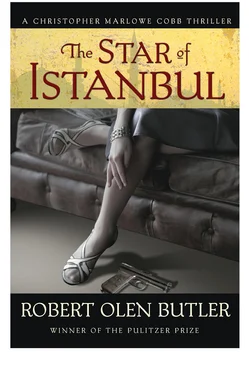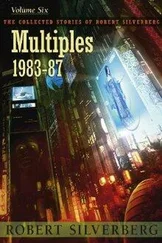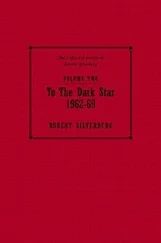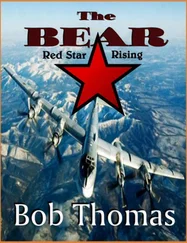The knock came again, a little louder.
Or it could be Brauer.
It was Brauer. His voice outside: “Miss Bourgani.”
I felt Selene stiffen.
The knock came again, though. Stupidly, it was more softly. He was second guessing the wisdom of disturbing her in the middle of the night. Which made him continue to try to disturb her, only more quietly.
He even lowered his voice: “Miss Bourgani.” He was addressing her formally. I was — in spite of my certainty that there was nothing personal between them — relieved.
He got even stupider. He said her name softly once more and simultaneously tried the latch on the door. Even though it would certainly be locked. And, of course, since it was most recently kicked shut by my heel while I had things on my mind other than securing the door, it was not locked.
The door opened.
A wide shaft of light fell upon Selene and me, sitting naked, side by side, on the parlor floor.
Framed in dark silhouette in the doorway was Walter Brauer.
“Get the hell out,” Selene barked.
Walter flustered there. It made him even stupider. “I’m sorry,” he said. “I didn’t know.”
“Get out,” she said.
This is how stupid: with us sitting naked before him, he felt compelled to justify his middle of the night interruption. “I wanted to reassure you about the U-boats.”
“Mr. Brauer,” Selene said sharply.
He blundered on: “They would stop us first, before sinking the ship.”
“We hardly know each other,” Selene said.
“The passengers would be allowed to disembark.”
“I am naked, Mr. Brauer,” Selene said.
“I’m sorry,” he said.
“So is this gentleman,” Selene said.
I knew what was driving Brauer. He was afraid a U-boat attack would upset their plans. This had occurred to him after Turner’s speech tonight. The attack could happen at any time, so for the sake of their conspiracy, he had to instruct her in an alternate plan, even if that meant doing it in the middle of the night.
“I’m sorry,” he said again.
“Get out.” Without a single “s” in either word I’m not sure how Selene made that sound like a hiss. But she did.
Brauer was finally getting the hint.
He was starting to close the door. Not fast enough.
“Out!” Selene cried.
And the silhouette vanished; the door clicked shut; the room went dark.
Selene and I sat there for a long moment not moving.
I wanted to say, “Who the hell was that?” It was the best question to ask to perhaps elicit an unguarded response.
But for maximum effect, it had to be asked instantly. I’d already waited too long.
Which was for the best anyway: she might have seen Brauer and me speaking together; he might have mentioned me to her, as an unusually snoopy newsman she should take care to avoid. I didn’t want her to catch me in a lie, pretending not to know him.
I said, “That was Walter Brauer, wasn’t it?”
Though I could not see her in the dark, I could sense her face turn to me.
Perhaps she didn’t know I’d encountered him. This could be just as useful, her abruptly realizing I knew him. I could even hint I knew about him.
I waited. She waited. Then she said, “Yes.”
“How do you know him?” I asked.
She called my bluff before I could get it started. “How do you?” she said.
I still wanted to seem to both of them to be an ignorant third party. No verifiable lies. Nothing suspicious. “I met him around,” I said. “Had a drink and a smoke with him and a bookseller friend of his a few nights ago.”
She did not reply to this. But along all the places where our arms and thighs were touching, I felt a faint loosening of tension in her.
“And you?” I said.
“Something similar,” she said.
“Really?” I meant this rhetorically, but I heard it sound like a challenge. It was already spoken, so I went ahead with the rest of it, even as I felt her tensing again. “He seemed awfully forward in the middle of the night,” I said.
She snorted. It was that female, dismissive “men” snort that is recognizable even in the pitch black.
I was relieved. She was taking it as jealousy.
“The night’s over, Mr. Cobb,” she said.
I couldn’t dispute that. But I didn’t move.
“Time for you to go,” she said, though once again the softness of her tone surprised me.
I rose. I gathered my clothes from the floor, my eyes finally adjusting a little to the dark, with the help of the crack of corridor light beneath the door.
As I put on the first thing, my shirt, I heard her move away toward the bedroom. Without a word.
Later, after I slipped on my shoes and after I kneeled to them and tied them and rose, after I’d finished with dressing, I hesitated, thinking to go to the bedroom door, to say something to her.
But I didn’t. A darkness like hers was spreading into my mind, like the darkness in the eyes after taking a blow to the head.
I moved toward the corridor door.
And then there was a rushing from behind me.
I turned.
I think part of me would not have been surprised if she were rushing to me with a knife that she’d plunge into my chest. But neither was I surprised when she leapt into my arms, still naked, hooking her legs around me, and she kissed me hard on the lips.
Nor was I surprised, when I tried to move into the room with her, that she just as rapidly disentangled from me and dismounted and backed away into the darkness, saying, “I’m sorry. That was good-bye. We’re done now, Kit Cobb.”
And the Lusitania steamed into its last sunrise. And we all steamed with it. I slept only a little after leaving Selene. I rose and I wrote some and I packed my things and I ate lunch, with the ship orchestra playing “The Blue Danube,” and I went down to the Purser’s Bureau in the Entrance Hall on B Deck and I retrieved the constant hidden companion of every foreign excursion of my war correspondent career: my money belt, with a stash of gold coins and with reporter credentials and a passport protected inside, for hot countries and cold, for wet countries and dry, for mountain battlefields and city back alleys.
Then I returned to my cabin and I opened my shirt and I strapped the belt around me and fastened my clothes around it as if I were about to mount a horse and ride into actual danger, and I chuckled. I don’t chuckle. But I affected a tough-guy ironic chuckle, like a bad actor doing a melodrama hero. Like I was such a well-equipped tough guy who thrived on danger but here I was, trapped in a chuckle-worthy lesser world that booksellers and pamphlet writers and sons of tycoons and mothers with their toddlers inhabited. Here I was, simply about to go through customs in Queenstown, Ireland, and board a train for London, England, with a secret mission to sneak around and think about what college lecturers and film actresses might be up to, having lately been used up and kicked out the door by a beautiful woman. This latter probably was the main thing that prompted the phony chuckle.
And even while I was going through this little fit of pique, like an actor in a repertory company peeved by the no-account role he’d been given to play, a U-boat captain was watching us do fifteen substandard knots in a goddamn straight line directly toward him and wondering just how lucky he was going to get.
Pretty goddamnn lucky, as it would soon turn out.
I stepped onto the promenade and the sky was clear and the sun was high and I felt how slow we were going right away. I walked aft, and the portside was full of people crammed at the brief stretches of open railing between lifeboats. The coast of Ireland was distantly visible out there. Some people were murmuring reassuring things about that. Others, who knew ships and their speed and their bearing, were muttering about our vulnerability. And even the ones who were made hopeful by the sight of land were unsettled by the absence of Turner’s promised Royal Navy. We were alone.
Читать дальше












